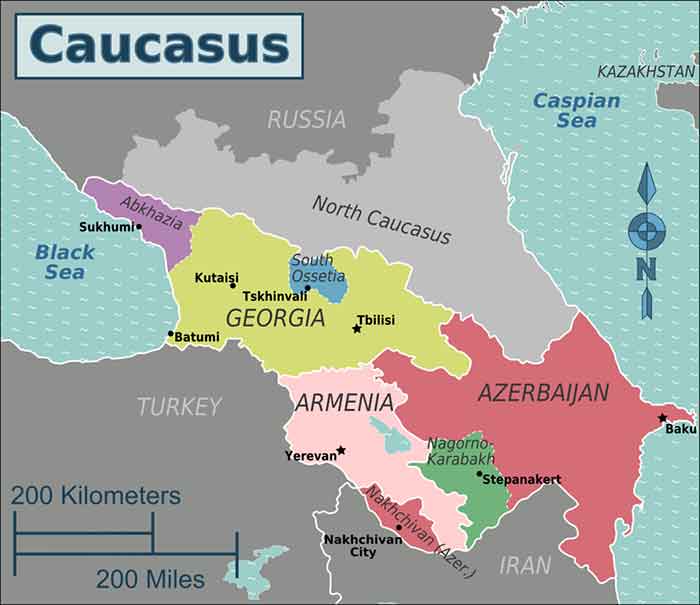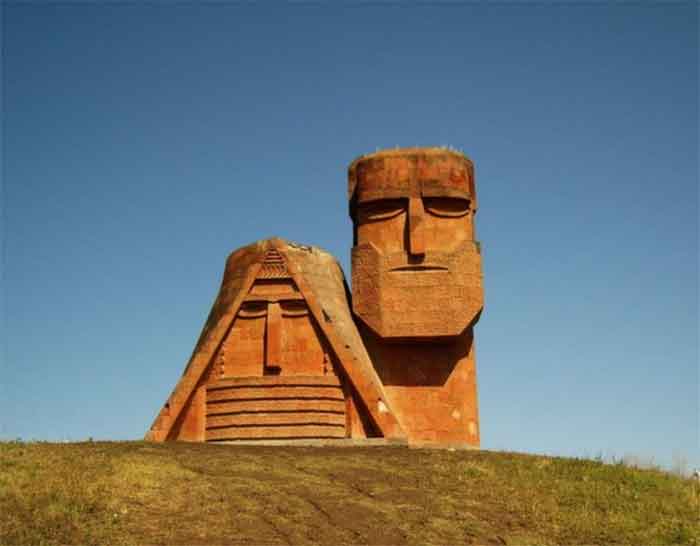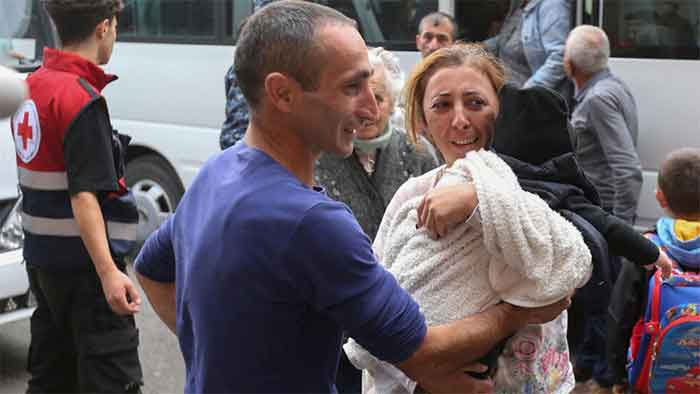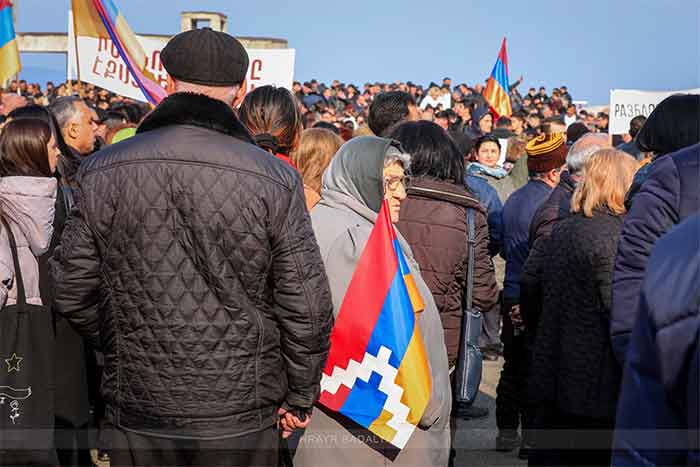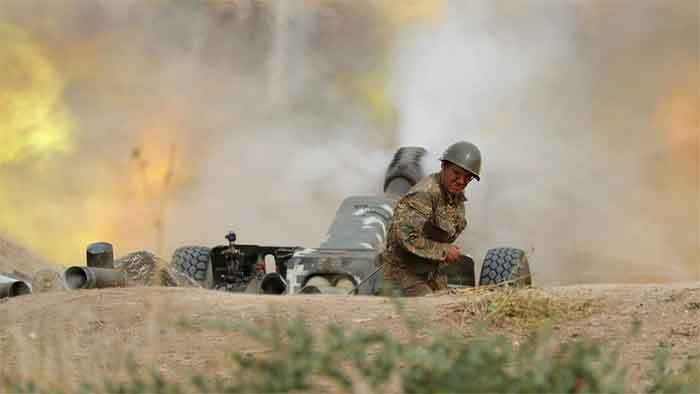
Massive conflicts erupted in September 27 between forces of Azerbaijan and Armenia over the disputed region of Nagorno-Karabakh, mostly governed by the unrecognized republic of Artsakh led by ethnic Armenians since the Karabakh war in 1990s. Initial conflicts started along the Nagorno-Karabakh Line of Contact subsequently extended with bomb and missile attacks at a few main cities of both parties and, according to available sources, conflicts already led to deaths of more than five thousand soldiers and civilians of both sides. The UN, the OSCE Minsk group and others including Germany called for de-escalation of conflicts and, amidst the escalation, both conflicting parties agreed to a ceasefire brokered by Russia in early October, but conflicts were resumed immediately and continue till date.
Of course, Nagorno-Karabakh conflicts that are simultaneously internal within the Republic of Azerbaijan and inter-state between Azerbaijan and Armenia over the disputed region, where most of the residents are Armenians by ethnicity, are not new. The modern phase of the conflicts started in February 1988 has links with initial clashes occurred in the Caucasus region immediately after the dissolution of the Trans-caucasian Democratic Federative Republic during 1918-1920 between two ethnic groups — Azeris and Armenians. Ethnic tensions increased at the time of the dissolution of the Soviet Union and lasted for up to 1994. Despite the fact that a peace deal in 1994 led to peaceful situations between the parties for years, border skirmishes occurred occasionally since then such as conflicts during 2011-13, 2014 clashes, 2016-17 renewed clashes and the recent most clashes.
Nagorno-Karabakh conflicts, rendered as one of the most significant post-Soviet conflicts, are very complicated —territorially and ethnically. In fact, parties differ on their positions. Azerbaijan claims that the area, which was given to it in 1918 by Joseph Stalin who was the acting Commissar of Nationalities for the Soviet Union in the 1920s, is officially its part and is internationally recognized. The UN and the OSCE Minsk group, which Russia, France, and the United States preside over, also acknowledge the disputed region as a territory of Azerbaijan. On the other hand, Armenia that de facto controls the territory since 1990s backs the Nagorno-Karabakh government against Azerbaijan and the government of the disputed region is in favor of becoming independent from Azerbaijan.
Along with effective ceasefire deals, any acceptable and peaceful resolution, as expected, needs to focus on two components: inter-state that is the issue Armenia’s occupation of the Azerbaijan’s territory including the Nagorno-Karabakh and internal that is the ethnic conflicts within Azerbaijan. Of course, it is not that efforts were not made for resolving the crisis; in fact, the Bishkek Protocol between the warring parties came into effect in 1994 brought stability in the region to a larger extent and major war did not emerge for decades. Moreover, the UNSC adopted several resolutions in 1993 aiming at the immediate cessation of all hostilities in the disputed area and seeking a solution favoring political means, while the OSCE Minsk group focused more specific solution with its Madrid Principles.
Resolution on the point of the withdrawal of Armenian forces from all territories of Azerbaijan occupied in the 1990s is obviously clear-cut —alternatively, disputed territory should be given back to Azerbaijan since Armenia’s occupation clearly violates territorial integrity and self-determination principles of the former. In fact, one of the key elements of the much talked-about Madrid principles —adopted in 2007 and updated in 2009 by the Minsk group based on the Helsinki Final Act of 1975 principles of Non-use of force, territorial integrity, and the equal rights and self-determination of peoples— clearly state the return of the territories surrounding Nagorno-Karabakh to Azerbaijani control. What’s more, the 2007 OIC Resolution and the 2010 UN Resolution called for withdrawal of all Armenian forces.
But the resolution of the Azerbaijan’s internal problem in Nagorno-Karabakh is obviously critical, even if the region is mostly accepted as a part of Azerbaijan. The Minsk group clearly favors an interim status of the disputed region with guarantees for security and self-governance and future determination of the final legal status through a legally binding expression of will. In fact, peace negotiations have thus far been carried out by this group through taking this choice into account but all efforts failed to see any light of hope with this option in spite of the fact that both Armenia and Azerbaijan have some supports to the Madrid Principles. It is undeniable that no party is earnest enough to solve the crisis.
In addition to reluctance and ethnic differences, existence of many other challenges puts hindrance to a peaceful and acceptable resolution with the above choice. Some remarkable obstacles between/among warring parties are frequent clashes, threats of military war, usage of the conflict as a means of preserving hereditary authoritarian regime, economic blockade of Azerbaijan over Armenia, lack of confidence, hatred or hate speech and problem of racism and xenophobia. Involvement of other countries with conflicts worsens situations too. Obviously, all such challenges are dissimilarly crucial but sustain conflicts giving rise to another vital question on whether the above choice is feasible or any other suitable option(s) — inclusive of but not limited to, territorial exchange between Azerbaijan and Armenia — may be more feasible and acceptable for a peaceful settlement of the historical crisis.
For successful negotiations aiming at acceptable and peaceful resolution, more efforts are needed. It is unsurprising that the OSCE Minsk group — the only internationally agreed body to mediate negotiations for peaceful resolution of the crisis in the disputed region —may not be successful in the peace process without engaging major regional powers including Turkey. Obviously, earnest cooperation from Russia and Turkey, which are historically involved with the conflicts, is really crucial. In my opinion, concerted international pressure on both parties can make the peace process more effective especially through compelling them to end conflicts and play their responsible roles for a peaceful solution. In fact, peaceful resolution will indeed remain afar without responsible roles of the conflicting parties.
Of course, creation of some facilitative conditions may contribute to conflict mitigation and sustainable peace in the region. In my opinion, development of economic relation between the countries may be given emphasis since it has potential to reduce the chance at continuing conflicts as warring parties are usually more interested in making rational decision focusing at economic gains of non–conflicts and economic loss of conflicts. Promotion of socio-cultural harmony, promotional steps against hatred or hate speech, building of confidence and addressing the problem of racism can also be effective in reducing enmity and increasing the possibility of an acceptable and peaceful solution. In this respect, development partners and NGOs can play important roles with good intentions.
Amir Mohammad Sayem is a Researcher and writer of Op-eds on miscellaneous issues including social, environmental, political, public health and international relations Dhaka, Bangladesh
Email:[email protected]
SIGN UP FOR COUNTERCURRENTS DAILY NEWSLETTER

